Premium Only Content
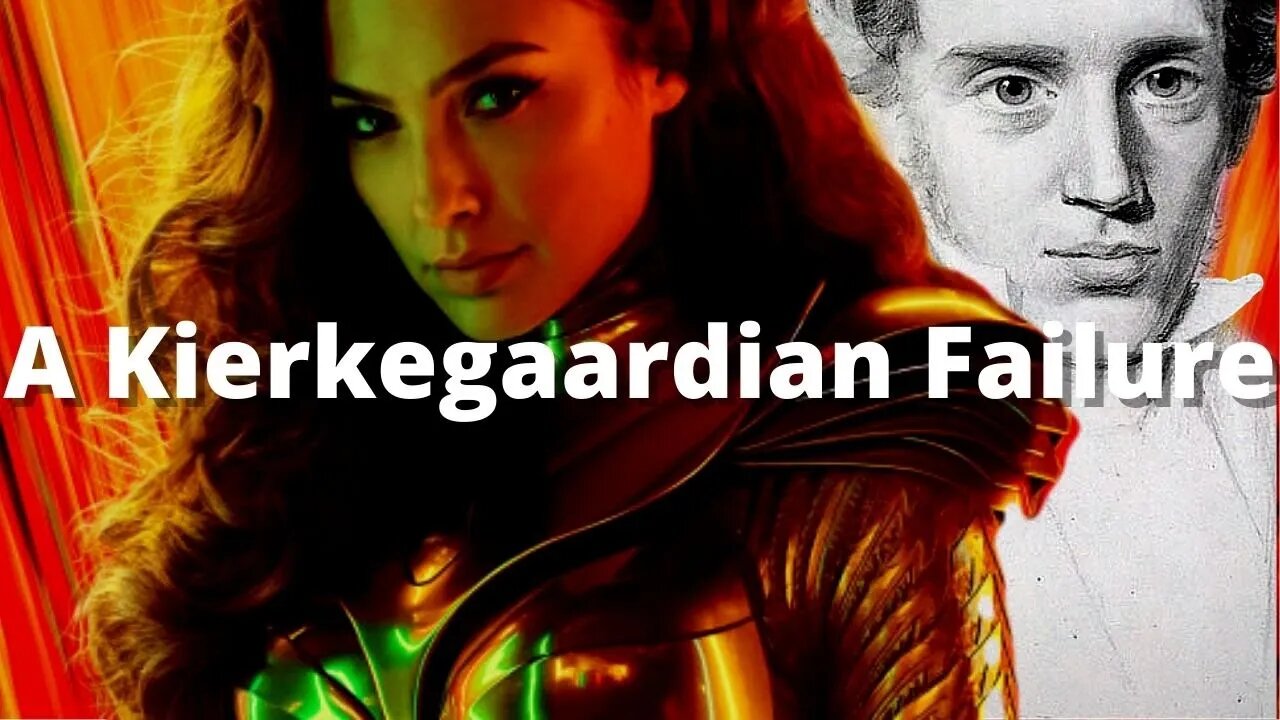
Analyzing WONDER WOMAN 1984 | Why It Failed According to Kierkegaard
WONDER WOMAN 1984 tried to do too much. It’s a behemoth two and half hour film with three major plots centering around 3 major conflicts. First you have the story of Barbara Minerva (Kristen Wiig), an unpopular adult woman who is overlooked and under appreciated by everyone at work, and despite no longer being in high school, she wants only to be as popular, confident, and attractive as her co-worker Diana Prince. As luck would have it, she wishes upon on a magic rock (the Dream Stone) and does become just like Diana, becoming a veritable superhero it-girl overnight. Hijinks ensue.
The second plot revolves around Wonder Woman herself (Gal Gadot) wishing upon that same magic rock to have her long-dead boyfriend Steve Trevor back. Lo and behold, he does come back, and hijinks ensue—a la Crocodile Dundee
The third plot revolves around the villain, played by Pedro Pascal, wishing upon the magic rock to become the magic rock in order to gain unlimited power. Hijinks ensue—a la Bruce Almighty
We’re left with a movie that’s trying be a glow-up story, a fish-out-of-water story, a romance, and a Ring of Power story all at the same time. None of the plots are done well, even though, in my opinion, they all have potential and each story could have made for a better film if only it had been the sole focus.
For example, You could focus on Barbara’s Story. It’s the classic Paradise Lost plot, the good-guy Lucifer becoming evil because he envies the more popular, powerful Son of God, or the Frankenstein monster becoming evil because he feels like a social outcast. What’s different about Barbara’s story however is that, unlike Lucifer or Frankenstein's monster, she does become popular, she does become as powerful and attractive as Wonder Woman. This story would have been a nice counterpoint to the recent Joker film which does essentially rehash that old Frankenstein plot. Joker becomes a monster because he is not accepted by society. But Barbara is the opposite. She is accepted, and does become popular and successful, but still becomes a monster. That story is new and refreshing and has potential.
Or focus on Diana's relationship with Steve. Ever since the first film, my biggest beef with the Wonder Woman character has been that she’s too bland. She has no major weakness. No serious moral problems. And it seems she has no strong desires. Nothing she can’t live without. But For a split second in this film, we are given a glimpse of what she wants. She wants Steve Trevor. Nothing else has come close to making her happy.
There’s so much potential in this film for exploring loneliness and loss and grief and unwillingness to move on. Diana’s wish to bring Steve back from the dead is the superhero equivalent of Hitchcock’s Vertigo that I need in my life. And Patty Jenkins sets this up so perfectly by having Trevor come back not in his own body, but in another’s man’s body, raising the questions of identity and manipulation that drive Vertigo, but with a fresh spin. Instead of filming the man as he objectively appears, Jenkins films him from Diana’s perspective. We see Chris Pine, not the other dude. We, Diana, are only actually able to see Steve Trevor. We’re unable to see what’s objectively there.
There was so much potential here for a profound exploration of perception and consciousness, the way love changes how we see and how love ends in tragedy. Not to be a Debbie Downer, but love is inevitably tragic. Ernest Hemingway, the crown prince and heir to the throne of Debbie Downers, said that “If two people love each other there can be no happy end to it.” “There is no lonelier man in death… than that man who has lived many years with a good wife and then outlived her.” This is the situation Diana is in, and I would have loved to see a more tragic Wonder Woman.
Unfortunately Wonder Woman had to share her own film with two other character plots. So we really don’t get to time to explore her feelings, or see her face an extended moral dilemma, or wrestle with the choice of whether to sacrifice her powers for the person she loves or to sacrifice the person she loves in order to save the world. It's all done in a moment.
The same is true of the villain's defeat/redemption. It's too quick. It feels unearned. It quickly brushes over the guilt of the villain and he faces no consequences. Which is ironic. The major theme of the movie is that you can’t take shortcuts: unearned power is dangerous, immediate popularity costs you your humanity, you can’t get your wish immediately and not lose part of yourself. Don’t take shortcuts. But ironically, the film itself takes shortcuts with all of its plot points. My major criticism of the film can be summed up by its own most poignant line. Steve says, “I wish we had more time.” Yeah, Steve, I wish you had more time too.
#wonderwoman #WW84
-
 31:20
31:20
Empire of the Mind
2 years agoTHE MEANING of A CLOCKWORK ORANGE: How Government & Science Threaten to Pervert Human Beings
507 -
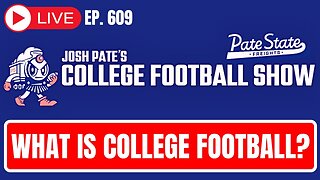 1:19:23
1:19:23
Josh Pate's College Football Show
5 hours ago $1.70 earnedBig Ten Program Rankings | What Is College Football? | Clemson Rage| Stadiums I Haven’t Experienced
42.6K -
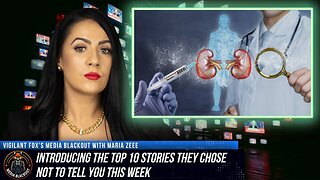 LIVE
LIVE
Vigilant News Network
10 hours agoBombshell Study Reveals Where the COVID Vaccine Deaths Are Hiding | Media Blackout
1,937 watching -
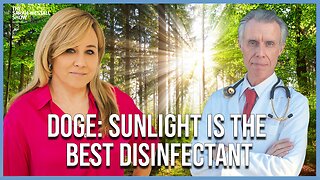 1:17:59
1:17:59
Sarah Westall
6 hours agoDOGE: Crime & Hysteria bringing the Critics & the Fearful - Plus new CDC/Ukraine Crime w/ Dr Fleming
26.4K3 -
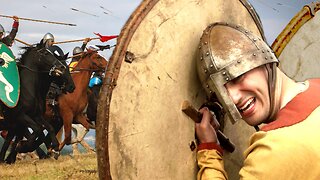 45:39
45:39
Survive History
12 hours ago $3.33 earnedCould You Survive in the Shield Wall at the Battle of Hastings?
26.6K5 -
 1:50:28
1:50:28
TheDozenPodcast
10 hours agoViolence, Abuse, Jail, Reform: Michael Maisey
71.4K2 -
 23:01
23:01
Mrgunsngear
1 day ago $4.23 earnedWolfpack Armory AW15 MK5 AR-15 Review 🇺🇸
64.9K12 -
 25:59
25:59
TampaAerialMedia
1 day ago $2.01 earnedUpdate ANNA MARIA ISLAND 2025
38.3K3 -
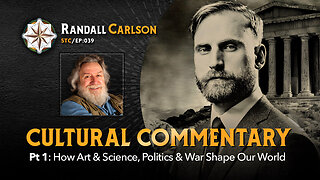 59:31
59:31
Squaring The Circle, A Randall Carlson Podcast
12 hours ago#039: How Politics & War, Art & Science Shape Our World; A Cultural Commentary From Randall Carlson
29.9K2 -
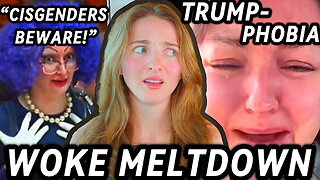 13:21
13:21
Misha Petrov
12 hours agoThe CRINGIEST Thing I Have Ever Seen…
23.8K48